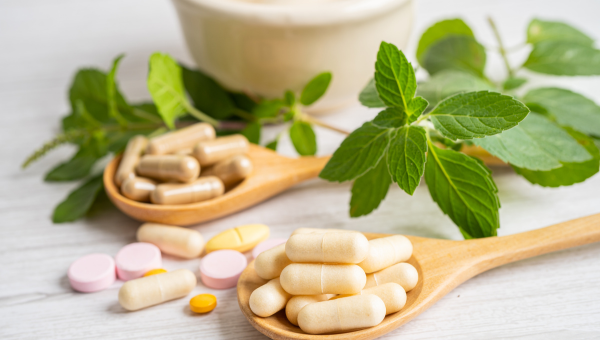In recent years, the ancient Indian practice of Ayurveda has experienced a remarkable resurgence on a global scale. Known for its holistic approach to health and wellness, Ayurveda is gaining popularity as more individuals seek natural and preventative healthcare solutions. This article delves into the factors driving the global rise of Ayurvedic products and treatments, explores market expansion strategies, and highlights emerging opportunities in the wellness industry.
Increasing Popularity of Ayurvedic Products and Treatments
One of the primary drivers of Ayurveda’s global rise is the growing consumer preference for natural and organic products. In an era where wellness and sustainability are at the forefront of consumer choices, Ayurvedic products, with their emphasis on natural ingredients and time-tested formulations, are becoming highly sought after. From herbal supplements and skincare products to dietary guidelines and holistic treatments, Ayurveda offers a comprehensive wellness solution that appeals to a health-conscious audience.
According to a report by IMARC Group, the global Ayurvedic market was valued at $4.5 billion in 2020 and is expected to reach $14.9 billion by 2026, growing at a CAGR of 22% during 2021-2026 . This trend is particularly evident in regions like North America and Europe, where consumers are increasingly incorporating Ayurvedic principles into their daily routines. The demand for Ayurvedic treatments, such as Panchakarma and yoga, is also on the rise, with wellness retreats and Ayurvedic spas becoming popular travel destinations.
Market Expansion Strategies
To capitalize on this growing demand, companies in the Ayurvedic sector are employing various market expansion strategies. One effective approach is the integration of modern science and technology with traditional Ayurvedic knowledge. By conducting rigorous research and clinical trials, companies can validate the efficacy of their products, thereby gaining trust and acceptance in global markets. For example, The Himalaya Drug Company has established research and development centers that combine advanced scientific methods with traditional Ayurveda to develop innovative and effective products .
Another strategy involves strategic partnerships and collaborations. Ayurvedic brands are partnering with international wellness centers, retail chains, and e-commerce platforms to enhance their global reach. For instance, Forest Essentials has formed partnerships with major retail chains like Harrods and e-commerce platforms such as Sephora to distribute its products globally, significantly expanding its market presence.
Emerging Opportunities in the Wellness Industry
The rise of Ayurveda presents numerous opportunities for innovation and growth within the wellness industry. One such opportunity lies in personalized wellness solutions. Advances in technology, such as genetic testing and AI-driven health assessments, can be combined with Ayurvedic principles to offer customized health plans tailored to individual needs.
Moreover, the increasing awareness of mental health and stress management has opened avenues for Ayurvedic practices like meditation and mindfulness to gain traction. Companies that can effectively integrate these practices into their offerings are well-positioned to tap into this burgeoning market.
Examples of Indian Companies Leading the Way
Several Indian companies are at the forefront of the global Ayurvedic market expansion.
1. Baidyanath
Established over a century ago, Baidyanath, now 107 years old, is renowned for its extensive range of Ayurvedic medicines and health products. The company combines traditional Ayurvedic knowledge with modern production techniques to ensure high-quality and effective products. Baidyanath’s commitment to authenticity and quality has made it a trusted name in Ayurveda, offering products that cater to various health needs, from digestive aids to immunity boosters.
2. Dabur India Ltd.
Dabur India Ltd.. is a leading Ayurvedic and natural health care company with a vast product portfolio that includes health supplements, personal care products, and food items. Known for its flagship products like Dabur Chyawanprash and Dabur Honey, the company leverages over 135 years of expertise in Ayurveda. Dabur’s emphasis on research and development, coupled with its extensive distribution network, has helped it achieve a strong international presence.
3. Himalaya Drug Company
The Himalaya Drug Company is a prominent player known for its herbal health and personal care products that have gained international recognition. With a legacy dating back to 1930, Himalaya offers a wide range of products, including skincare, haircare, and wellness supplements. The company’s scientific approach to Ayurvedic research and its use of modern technology ensure the efficacy and safety of its products, making it a popular choice globally.
4. Forest Essentials
Forest Essentials has made a name for itself in the luxury Ayurvedic segment. Combining the ancient wisdom of Ayurveda with the aesthetics of modern luxury, Forest Essentials offers an exclusive range of skincare, haircare, and wellness products. The brand is known for its high-quality ingredients and meticulous manufacturing processes. By partnering with international retail chains like Harrods and e-commerce platforms such as Sephora, Forest Essentials has significantly expanded its market presence and appeal to a global audience.
Each of these companies exemplifies the successful integration of traditional Ayurvedic principles with modern business strategies, contributing to the global popularity and acceptance of Ayurvedic products.
Key Trends Shaping the Ayurvedic Market
The global Ayurvedic market is witnessing several key trends that are shaping its expansion:
- Increasing Consumer Awareness: As more individuals become aware of the benefits of natural and holistic health solutions, the demand for Ayurvedic products continues to rise. This trend is supported by the growing number of scientific studies validating the efficacy of Ayurvedic treatments. For example, a survey conducted by the Associated Chambers of Commerce and Industry of India (ASSOCHAM) reported a 45% increase in the consumption of Ayurvedic products during the pandemic, reflecting heightened interest and trust among consumers.
- Regulatory Support and Certification: Governments and regulatory bodies worldwide are recognizing the potential of Ayurveda and are creating supportive frameworks for its growth. Certification by recognized authorities enhances consumer trust and opens new markets. In India, the Ministry of AYUSH has been instrumental in promoting Ayurvedic practices and products, while in Europe, the European Medicines Agency (EMA) has begun recognizing certain Ayurvedic products as traditional herbal medicines.
- Innovation in Product Development: Companies are investing in R&D to develop new Ayurvedic products that cater to modern health challenges, such as stress, lifestyle diseases, and chronic conditions. Innovations like Ayurvedic nutraceuticals and functional foods are gaining popularity. For instance, Kapiva has introduced a range of health juices and capsules with modern packaging that caters to contemporary aesthetics, aimed at improving immunity and overall wellness. By leveraging e-commerce platforms effectively, Kapiva has successfully penetrated the market and attracted a health-conscious, modern consumer base.
- Expansion of Distribution Channels: The proliferation of e-commerce platforms and the establishment of dedicated Ayurvedic sections in retail stores are making these products more accessible to a global audience. Partnerships with major retail chains and online marketplaces are crucial for market penetration. Patanjali’s collaboration with Amazon and Walmart to sell its products internationally is a prime example of this trend.
- Educational Campaigns: Educating consumers about Ayurveda through workshops, online courses, and informative content helps build awareness and trust. Companies are increasingly using digital platforms to reach a broader audience and provide comprehensive information about their products and benefits. For example, Himalaya Drug Company runs extensive educational campaigns on social media and its website to inform consumers about the science behind its products and the benefits of Ayurveda.
- Increased Demand for Natural Ingredients and Immunity Building: The pandemic heightened the demand for natural ingredients and immunity-boosting solutions, propelling Ayurveda into the spotlight. “Ayurveda economy has seen up to 90 per cent growth post-COVID pandemic”, as Ayurveda has gained a global acceptance, Union Health Minister Harsh Vardhan. This trend reflects a broader shift towards preventive healthcare and wellness practices in India, where traditional knowledge systems like Ayurveda have gained renewed appreciation for their efficacy and safety amidst global health challenges.
In conclusion, the global rise of Ayurveda is a testament to the growing consumer inclination towards natural and holistic health solutions. As the market continues to expand, businesses that embrace innovation, maintain authenticity, and prioritize consumer education will thrive, paving the way for Ayurveda to become a cornerstone of the global wellness industry.





